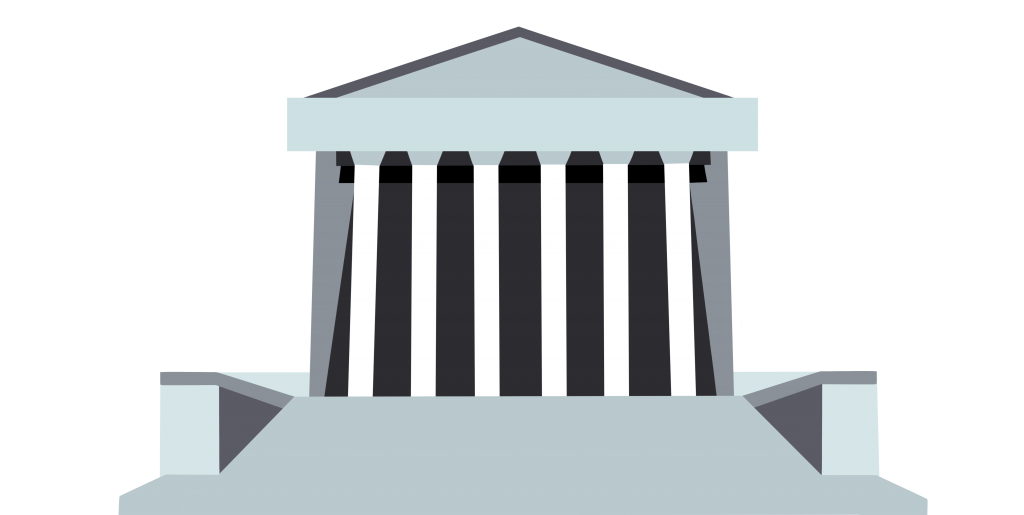If you’re confused about what the latest rules are for evictions during the pandemic, you’re not alone. Things are changing all the time. Last week, the U.S. Supreme Court struck down a nationwide eviction moratorium, opening the door to evictions in certain parts of the country.
In this post, we’ll take a look at the laws surrounding evictions right now, as well as resources to cope with this challenging time.
Table of Contents
- What Happened to The Eviction Moratorium?
- Are Evictions Permitted Everywhere?
- What to do if You’re Behind on Rent or Owed Rent
What Happened to the Eviction Moratorium?
Last year, millions of people lost their jobs when businesses were forced to close to comply with measures taken to slow the spread of the coronavirus. One response to the economic crisis was the CARES Act, which Congress passed in March of 2020 and which prohibited evictions across the country for 120 days.1 The rationale was to prevent people from being thrown out of their homes at a time when almost everyone was under a “stay-at-home” order.
When that moratorium expired, Congress did not renew it. Instead, the Centers for Disease Control and Prevention, which is part of the executive branch of the federal government, issued an order extending it through the rest of 2020.2 At the height of the winter COVID-19 surge, Congress extended the moratorium by a month, and then the CDC extended it again, ultimately through July of 2021.3
The last extensions of the CDC were challenged by various landlord groups throughout the country, who argued that the agency did not have the power to issue a nationwide eviction moratorium without the consent of Congress. In late June of this year, the U.S. Supreme Court disagreed and allowed the moratorium to remain in effect. But the narrow ruling seemed to indicate that this would be the last time the agency would be able to extend the moratorium without “clear and specific” authorization from Congress.4
When Congress refused to act, the Biden administration appeared to believe that it was out of options. But as the July 31 deadline came and went, infections were surging around the country because of the rise of the Delta variant of COVID-19, and the CDC issued another moratorium on Aug. 3.5 This remained in effect until last week, when the Supreme Court issued a ruling in a case brought by the Alabama Association of Realtors. The high court allowed a lower court ruling blocking the law to take effect, concluding that “It is up to Congress, not the CDC, to determine whether the public interest merits further action here.”6
Are evictions Permitted Everywhere?
Whether eviction cases can be heard depends on where in the country you live. The Supreme Court’s ruling struck down a moratorium from the federal government. Various state governments, as well as cities and counties throughout the country, have imposed their own moratoriums that are unaffected by the Supreme Court’s ruling. For example, lawmakers in New York state just extended an eviction moratorium through January.7 If you are unsure whether you are covered by an eviction moratorium, try reaching out to the office of a state legislator that represents the area where you live. These offices are also excellent places to connect you with resources for helping cover back rent.
What to Do if You’re Behind on Rent or Owed Rent
Just as state and local areas have their own rules for whether evictions are allowed, they also have their own programs to aid landlords and tenants whether the crisis.
The federal government has distributed billions of dollars to states to set up rent relief programs of their own. These programs are available to people who have been economically impacted by the pandemic, which includes those who have lost work, faced medical bills, or increased childcare expenses. To find programs in your area that are offering rental assistance, click here.
Landlords can also benefit from these efforts. The federal relief money also includes funds to cover owed rent.8 In some cases, these programs pay all or a percentage of owed rent to tenants, who are legally obligated to pass it on to landlords, and in other cases, landlords are eligible for direct payments. As a landlord, you may also be eligible for a pause or forbearance in mortgage payments if you’re mortgage is federally backed or federally insured. Click here and here to see if your loan qualifies.
Finally, whether you are a landlord or a tenant, communication remains key. Tenants who are behind on rent should speak to their landlords, discuss repayment plans, and address relief opportunities they may be exploring. If you are a landlord thinking about pursuing eviction, consider that, even if you live in a state where eviction is allowed, it could be a while before the tenant is actually forced to move: It’s been nearly 18 months since most courts have been enforcing evictions, and there is likely a lengthy backlog in the calendar. (Court operations may also be limited by the pandemic.) For this reason, it may be beneficial to seek assistance and try to work something out with your tenants.
Sources:
- https://www.congress.gov/116/plaws/publ136/PLAW-116publ136.pdf
- https://www.govinfo.gov/content/pkg/FR-2020-09-04/pdf/2020-19654.pdf
- https://www.federalregister.gov/documents/2021/06/28/2021-13842/temporary-halt-in-residential-evictions-to-prevent-the-further-spread-of-covid-19
- https://www.supremecourt.gov/opinions/20pdf/20a169_4f15.pdf
- https://davidscott.house.gov/uploadedfiles/signed-cdc-eviction-order.pdf
- https://www.supremecourt.gov/opinions/20pdf/21a23_ap6c.pdf
- https://www.nytimes.com/2021/09/01/nyregion/eviction-moratorium-new-york.html
- https://www.consumerfinance.gov/coronavirus/mortgage-and-housing-assistance/help-for-landlords/
